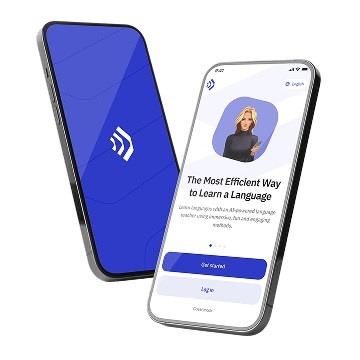Colombia, known for its rich culture and history, has increasingly become a hub for language learning, particularly for Spanish. However, in recent years, there has been a growing interest in learning Portuguese in Colombia. This interest is driven by several factors, including Colombia’s geographical proximity to Brazil, increasing economic ties, and the cultural richness of the Portuguese language.
Economic Opportunities: Brazil is one of the largest economies in Latin America and a key trade partner for Colombia. Knowledge of Portuguese opens up numerous job opportunities in sectors like trade, diplomacy, and tourism.
Cultural Exchange: With the vibrant Brazilian culture, known for its music, dance, and festivals, learning Portuguese allows individuals to experience and enjoy these aspects more profoundly.
Educational Prospects: Many Colombians are choosing to further their education in Brazil, due to the availability of scholarships and partnership programs between universities in both countries.
Popular Cities in Colombia for Learning Portuguese
Several cities across Colombia have established themselves as centers for learning Portuguese, each offering unique advantages for learners.
Bogotá: As the capital and largest city, Bogotá has numerous language institutes and private tutors specializing in Portuguese. The city’s diverse international community also provides an immersive environment for language practice.
Medellín: Known for its innovation and youth culture, Medellín offers a dynamic setting for learning Portuguese. Language cafes and exchange meetups are common, facilitating practical use of the language.
Cartagena: This historic city attracts tourists from around the world, including Portuguese-speaking countries. Learners can practice the language with native speakers in a real-world context.
Cali: As the salsa capital of the world, Cali’s cultural affinity with Brazil makes it an exciting place to learn Portuguese. The city offers various language courses tailored to embrace this cultural connection.
Choosing the Right Portuguese Language Program in Colombia
When selecting a Portuguese language course in Colombia, several factors should be considered to ensure the best learning outcome.
Accreditation: Ensure that the language school is accredited by relevant educational authorities in Colombia. This guarantees that the curriculum meets certain standards and that the certification provided is recognized.
Curriculum: Look for a curriculum that covers both written and spoken forms of Portuguese, ideally with a focus on Brazilian Portuguese due to its prevalence in South America.
Class Size: Smaller class sizes are preferable as they allow for more personalized attention from instructors and better interaction among students.
Qualified Instructors: Instructors should be native speakers or highly fluent in Portuguese, with professional qualifications in language teaching.
Extracurricular Activities: Programs that offer cultural immersion activities, such as dance classes, cooking workshops, or city tours, provide a richer learning experience.
Online Portuguese Courses and Resources
For those who prefer flexible learning schedules or cannot attend in-person classes, online Portuguese courses are an excellent alternative.
Language Learning Platforms: Websites like Duolingo, Babbel, or Rosetta Stone offer comprehensive Portuguese courses that are interactive and user-friendly.
Private Tutoring: Platforms such as iTalki or Preply connect learners with private tutors for personalized one-on-one sessions via video call.
YouTube Channels: Numerous channels are dedicated to teaching Portuguese. These can be great supplementary resources for practicing listening and pronunciation skills.
Language Exchange Apps: Apps like Tandem or HelloTalk allow users to practice Portuguese with native speakers who are looking to learn Spanish, facilitating mutual learning.
Challenges and Tips for Learning Portuguese in Colombia
While learning Portuguese in Colombia offers many opportunities, it also comes with challenges. Awareness of these can help learners prepare better.
Dialect Differences: The Portuguese spoken in Brazil has distinct differences from that of Portugal. Learners should focus on Brazilian Portuguese, especially considering the geographic and economic ties between Colombia and Brazil.
Interference from Spanish: As both are Romance languages, Spanish speakers might find themselves confusing similar words or grammar rules. It’s important to practice consistently and be conscious of these differences.
Staying Motivated: Like learning any language, maintaining motivation is key. Setting clear goals, regularly consuming Portuguese media, and practicing with native speakers can help sustain interest and commitment.
Integration with Locals: Engaging with the Brazilian community in Colombia or participating in Brazilian cultural events can enhance language skills and provide a deeper understanding of the cultural context.
Conclusion
Learning Portuguese in Colombia not only offers personal and professional growth but also a doorway to experiencing the rich Brazilian culture and forging stronger connections between Colombia and Brazil. By choosing the right program, leveraging online resources, and immersing oneself in the language and culture, anyone in Colombia can successfully learn Portuguese and enjoy the myriad benefits it brings.






